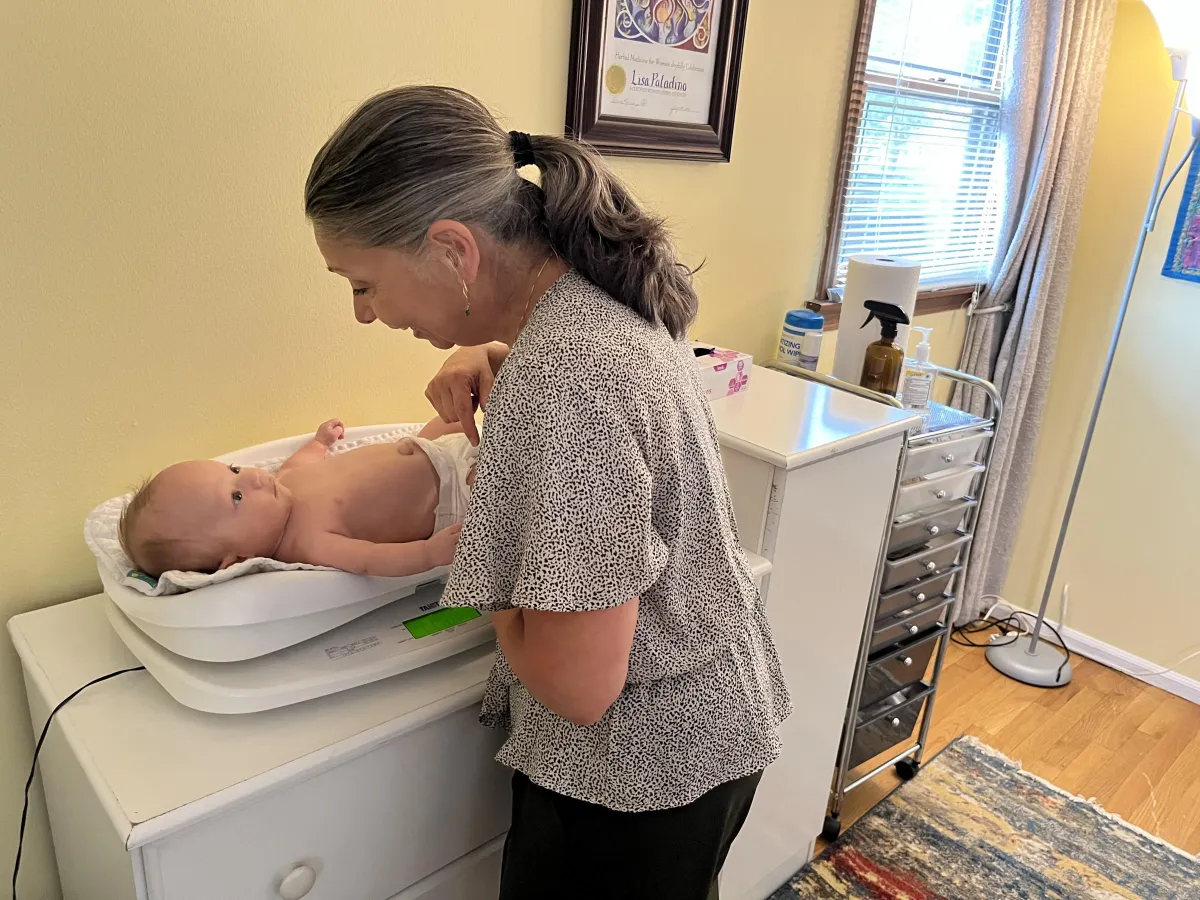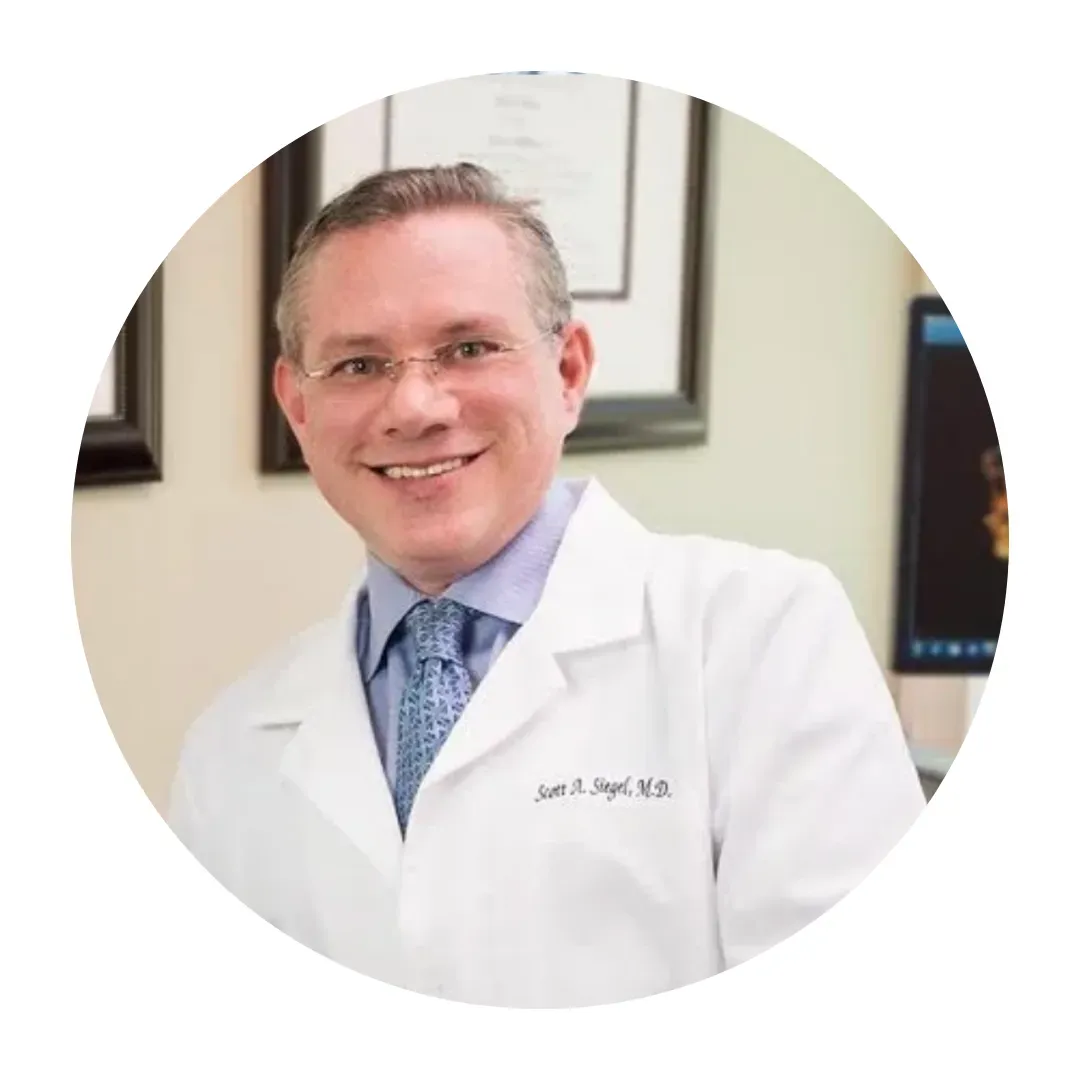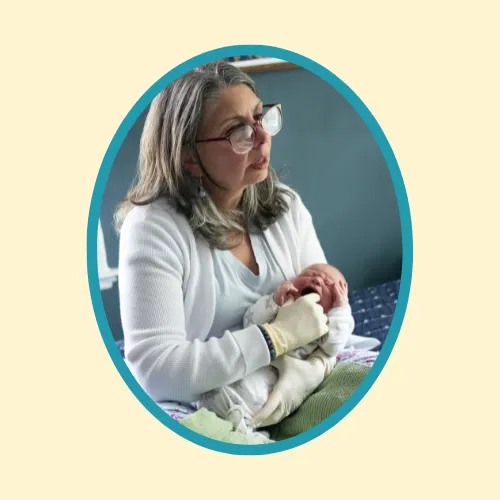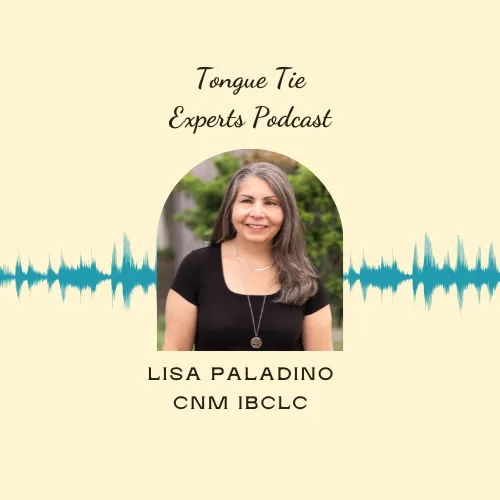Tongue Tie Experts:
Impactful Education for Professionals & Parents
Welcome!
I'm Lisa Paladino:
Founder of Tongue Tie Experts
Mom,Grandma,
Midwife,Lactation consultant
You’re here because you care deeply about breastfeeding families —
and you’re tired of guessing when it comes to tongue ties.
Let’s be real:
👎🏼 Most training programs barely touch it.
👩⚕️ You're left piecing together info that still leaves you unsure.
💥 That ends here
Whether you're an IBCLC, PT, OT, SLP, or provider who wants to do better
—this course gives you the clinical clarity and confidence you’ve been missing
Backed by 35+ years of hands-on experience. I’ll teach you exactly what you need to assess, educate, and serve families with impact.
Welcome!
I'm Lisa Paladino:
Founder of Tongue Tie Experts

Mom,Grandma,
Midwife,Lactation consultant
You’re here because you care deeply about breastfeeding families —
and you’re tired of guessing when it comes to tongue ties.
Let’s be real:
👎🏼 Most training programs barely touch it.
👩⚕️ You're left piecing together info that still leaves you unsure.
💥 That ends here
Whether you're an IBCLC, PT, OT, SLP, or provider who wants to do better
—this course gives you the clinical clarity and confidence you’ve been missing
Backed by 35+ years of hands-on experience. I’ll teach you exactly what you need to assess, educate, and serve families with impact.
Professionals
I Didn't Learn This in School, Did You?
For the Best Outcomes, Tongue Tie Treatment:
Is based on FUNCTION not appearance
We all have frenum, that's normal. Assessment and Treatment evaluates and optimizes functional tongue movements, not what the frenum looks like. Functions include feeding, airway and speech.
Involves a TEAM
Interdisciplinary learning and treatment is a cornerstone of the Tongue Tie Experts Protocol. When all professionals are educated with the same evidence, communicate with each other and treat collaboratively, families have better outcomes.
Is INDIVIDUALIZED
This is not a one-size-fits all method. We must see our patients as unique, and meet their individual needs based on their function and their goals and capacities.
Prioritizes EDUCATION
Educating patients is the primary focus here. Give information and trust your patients to make the right decisions for their own baby. Education empowers and elevates all of us.
About Lisa
Lisa Paladino is a Lactation Consultant (IBCLC) and Certified Nurse Midwife, with over 35 years of experience helping new families to breastfeed. Besides guiding hundreds of parents through pregnancy, birth, and breastfeeding, Lisa is an author, lecturer and advocate for tongue tie education and women's health issues.
She has written the best-selling program, "A Parent's Guide to Tongue Tie", the book, "It Shouldn't Hurt to Nurse Your Baby", and is the founder and administrator of the popular FB group, Breastfeeding Tongue Tied Babies and the Instagram page, Tongue Tie Experts, as well as the host of the Tongue Tie Experts Podcast.
Through her offerings, Lisa shares the successful methods and protocols that she has developed for her patients, Her mission is for all infants with tongue tie to be supported by providers who are informed and for all dyads to reach their breastfeeding goals.

What Others Are Saying
We have 300+ students from 10 Countries & 22 States

I learned so much in the course and use what I learned daily. So thankful for Lisa's down to earth approach and the concise manner in which she shares information!I am really grateful for your course. NOW I feel everything is completed It is just set in my mind forever!

Dr. Anna Lichnowska,
Speech Therapist, Poland

I highly respect and endorse Lisa's professional program. We've collaborated extensively on treating infants with tethered oral tissues, where her expertise as an IBCLC is globally recognized. She's truly an authority in this field.

Dr. Scott Siegel
MD DDS

I loved this course and community! It perfectly blended my OT infant feeding work with my lactation background as a CLC. I use the exercises in my home programs and recommend it to colleagues—it's a must-take for anyone in the infant feeding space!

Cindy Napoli
ROT/L; CLC ; CEIM
Frequently Asked Questions
Is Tongue Tie Experts open to all professionals?
Yes!! Our programs are open to all lactation, birth, medical, and dental professionals. We include body work, speech therapists etc...Anyone who is taking care of pregnant or breastfeeding families, or infants in any capacity is welcome! Why? Because most families give up on their feeding goals before they see a lactation consultant. Families need every one of us.
Is tongue tie a fad?
Tongue tie is a legitimate anatomical and functional condition—but like any area of healthcare, it’s vulnerable to misinformation. This platform helps you separate myth from evidence and understand when intervention is truly warranted.
Why is tongue tie often missed by healthcare providers?
Many professionals receive little to no training on oral restrictions during their education. Signs can be subtle, especially in newborns, and often present as feeding or functional challenges rather than visible anatomy alone.
Can tongue tie really affect breastfeeding that much?
Yes. Tongue tie can interfere with maternal comfort, ability to latch, milk transfer, poor weight gain, and maternal supply issues. It can also cause long-term functional concerns if left unaddressed.
Should every baby with a tongue tie have a procedure to release (frenotomy)?
Not necessarily. Assessment should focus on function, not appearance alone. Treatment decisions should be made collaboratively, considering symptoms, feeding goals, and the readiness of the family. AND surgery isn't the only method of treatment.
Can tongue tie affect bottle fed babies too?
Absolutely. While breastfeeding issues are often the first sign, oral restrictions can impact bottle feeding, airway development, speech, and more—regardless of how the baby is fed.
How do I know if I’m qualified to assess tongue tie?
Even if you're not diagnosing, you can be trained to recognize red flags and functional concerns. No matter your title, you play a vital role in identifying possible issues and referring families to the right support team.

Copyright 2025 | LisaPaladinoEnterprises
CONTACT US: [email protected]



